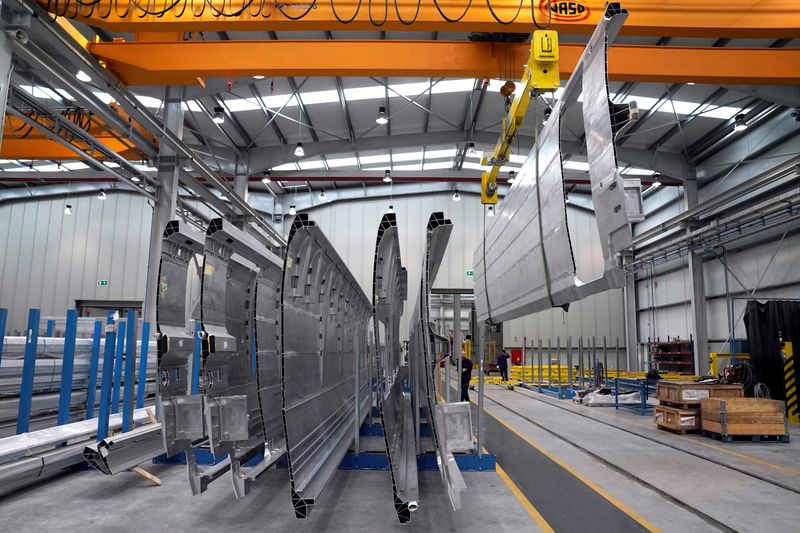Spanish July factory activity contracts most since 2020 lockdown-PMI
2022.08.01 10:38

An operator moves aluminium side panels at the factory of Spanish train manufacturer Talgo, in Rivabellosa, Spain, October 11, 2018. REUTERS/Vincent West
MADRID (Reuters) – Factory activity in Spain contracted in July for the first time in a year and a half as inflationary pressures and macroeconomic uncertainty weighed on demand, a survey showed on Monday.
S&P Global (NYSE:SPGI)’s Purchasing Managers’ Index (PMI) for manufacturing fell to 48.7 in July, down from 52.6 in June, according to the survey. The indicator in June was below the 50.0 level that marks an activity contraction for the first time since Jan. 2021 and the lowest since May 2020, when the country was in a strict lockdown.
Sales plummeted as a result of the uncertainty, businesspeople polled by S&P Global said, some of them predicting a recession in the second half of the year.
“Demand experienced a noticeable retrenchment – both across domestic and international markets – which led to a drop in output,” S&P Global’s economist Paul Smith said.
“This is also reflected in firms’ expectations, which slumped noticeably,” he said. Concerned about the economic downturn in the coming months, companies “are taking increasingly defensive positions as highlighted by cuts in employment, inventories and purchasing.”
The PMI survey doesn’t bode well for the manufacturing sector in the third quarter after it expanded a scant 0.1% in the April to June period, according to data released by the official statistics agency INE on Friday.
Despite the headwinds, the Spanish government earlier this week maintained its GDP growth forecast for the full year at 4.3% though lowered it to 2.7% for 2023. The second quarter quarterly growth was unexpectedly high at 1.1%.
Spanish 12-month inflation to July rose to 10.8%, its fastest pace since 1984, INE said on Friday.








